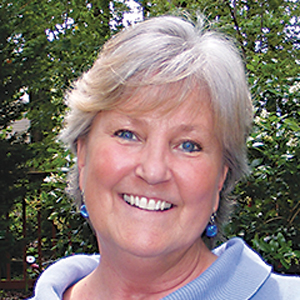Q: I gave in this summer and let my 3-year-old fall asleep on the couch most nights while watching her favorite movie. Any ideas for getting her back into her bed and sleeping at an appropriate hour?
A: Have you ever noticed how 3-year-olds can become rigid, even obsessive, in the habits they attach to? Parents often find they’re afraid to deviate from what the child has attached to because the response from said 3-year-old tends to be loud and dramatic and persistent. Now that you realize this was not a good idea, let’s fix it.
Because the child becomes extremely attached to specific ways of doing things, it’s best to be direct, avoiding transitional objects, and plans. In other words, go for it!
Our fairness meter encourages us to modify a behavior like this gradually. But this age child knows only black and white. Gradual is gray. Three-year-olds don’t like gray. They get attached to it and then we change it again! So, jump in with both feet and put your seat belt on, because this age child transitions with a lot of emotion – not logic, not reason. Emotion.
Together, select a day to return to her bed and regular bedtime ritual. Circle that date and plan what that ritual will be. Write your plan down so it looks very important. Anticipate your child will resist this when the evening arrives. This is because bedtime is almost always a challenging transition for a child. She must detach from you – her source of everything. You will help generate a calm environment for sleep when you offer your child the best of you and your complete attention for just a few moments during the bedtime ritual. Slow your pace, giving her time to adjust. Replace the movie with reading to her in her bed. You might want to use some white noise such as a fan in her room. Television helps many children fall asleep because the noise becomes the brain’s focus rather than the racing thoughts we have as we try to quiet ourselves. White noise can accomplish this as well.
Now, be very clear in your expectation: “You must stay in your own bed.” You cannot make her go to sleep, so don’t try to control that. Allow her to have books and lovies in her bed that offer comfort and help quiet brain activity as she transitions to sleep. Park yourself outside her room. When you hear her feet hit the floor, immediately enter her room and calmly put her back in her bed without a word. How many times? As many as it takes.
Lulling oneself to sleep is a skill of self-reliance. These are skills that encourage a sense of competence and confidence in a child. To you and I, falling asleep without help is just about the sleep. But to a child, this ability translates to self-reliance. And that is how self-confidence is born. Ample sleep that is the result of a consistent and healthy routine is critical to a child’s physical and psychological development.
Q: My 12-year-old wants to go trick-or-treating with some friends in our neighborhood, but he does not want me tagging along. Just thinking about this makes me anxious. Is there a right age to allow this kind of thing? Am I wrong to worry?
A: It is the job of a parent to be aware of the potential dangers inherent in their children’s activities. Sometimes, this awareness becomes worry. Awareness makes us smart; worry makes us anxious. And because children personalize everything, a parent’s anxiety is often experienced by the child as anger and distrust. So, while worry is natural, it is quite counter-productive. Be informed and use that information to assist your child through his evolving independence using education and planning, not fear.
At the core of your question is the issue of the 12-year-old’s pull toward independence. At the center of this developmental instinct to separate from his parent’s authority is the tween’s need to be trusted to make some of his own decisions and to take healthy risks. Like any muscle that is not exercised, this child’s ability to problem-solve efficiently will atrophy unless he is allowed to try, fail, and try again. The key to helping this age child try something new and be successful is to communicate very clear expectations and physical boundaries. Writing down exactly where he may and may not venture is a visual reminder for a very visual learner. Actually walk through what you have planned together. This supports the experiential learner. Then follow up this experience with a time to evaluate.
While there is no formula that would suggest a right age for experiences like this, there is a constellation of behaviors that would suggest your 12-year-old might be ready. A child who is predictable and consistent in his compliance and in managing his impulsivity is likely to be successful. And certainly, the child who is willing to hear his parent’s concerns and collaborate with her in planning for a successful age-appropriate adventure would be demonstrating such readiness.




